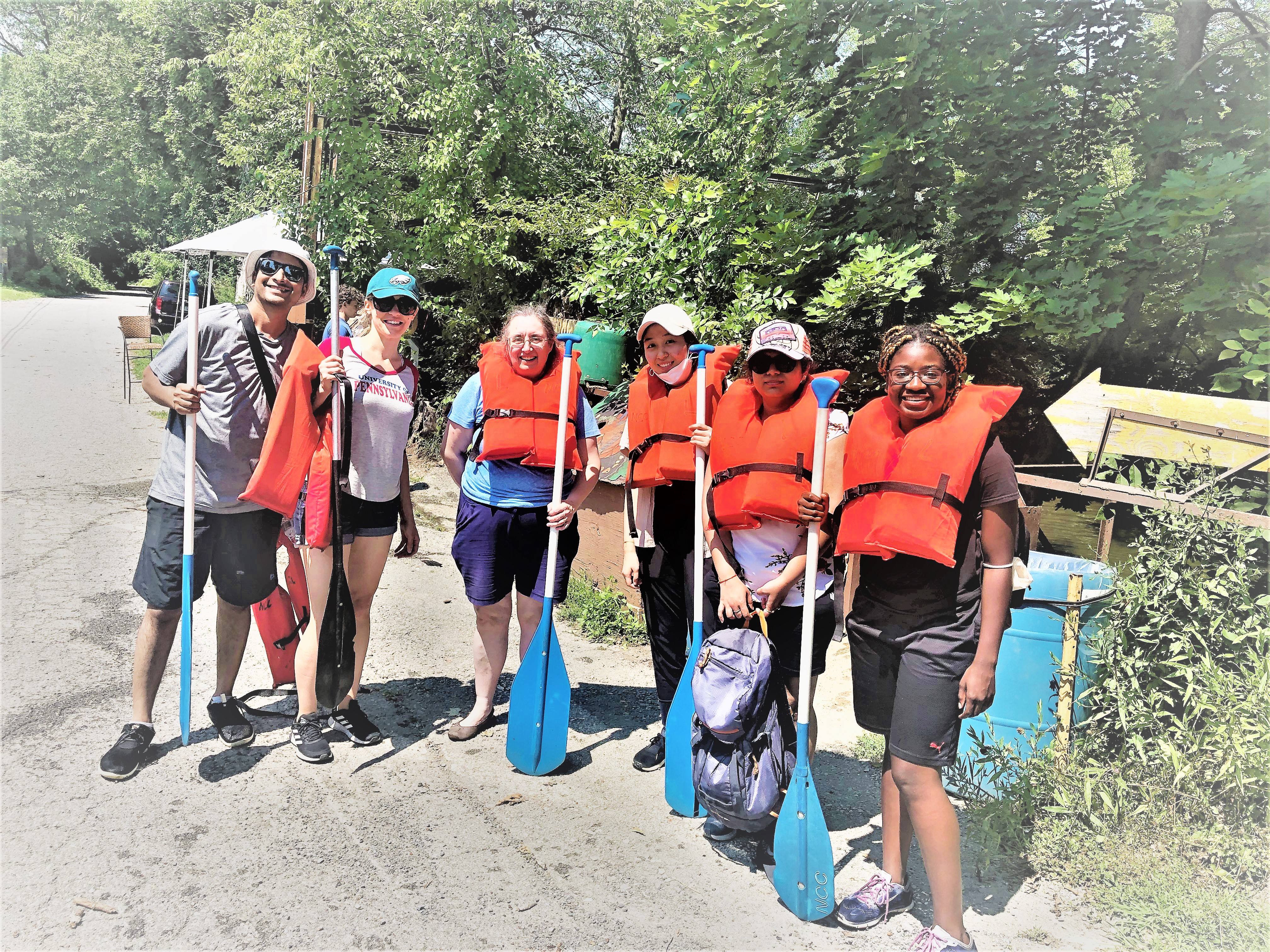Personnel of the Amaravadi Lab
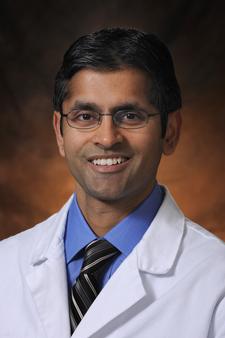
Ravi Amaravadi, MD
PI
ravi.amaravadi@pennmedicine.upenn.edu
Dr. Amaravadi is a physician scientist with expertise in therapeutic drug development, cancer therapy resistance, MAPK signaling, cancer cell metabolism, autophagy, immunobiology, conducting early phase clinical trials, and clinically treating patients with advanced melanoma. He was one of the first to demonstrate that autophagy is a targetable mechanism of resistance in cancer therapy using animal models. He has translated this finding into numerous clinical trials in multiple cancers. These translational studies were the first attempt to modulate autophagy therapeutically in any disease. Working with collaborators in Chemistry, his lab has designed, synthesized and characterized a novel autophagy inhibitor Lys05 and DC661. Dr. Amaravadi's laboratory is focused on melanoma as a model. He is also a recognized melanoma medical oncologist and phase I trialist who has served as the site PI or co-investigator on melanoma clinical trials involving BRAF inhibitors, and first in human phase I clinical trials of novel cancer agents. In 2013 he was appointed co- Leader of the Cancer Therapeutics Program of the Abramson Cancer Center. In 2015 he was inducted into the American Society of Clinical Investigation. In 2021 he became co-Director of the Wistar/UPenn Skin SPORE. In 2023 he became Associate Director of Translational Medicine at the Abramson Cancer Center. In 2023 he was inducted into the Association of American Physicians. In 2025 he became in the inaugural Tara Miller Professor of Melanoma Research and Patient Care.
Current Lab Members
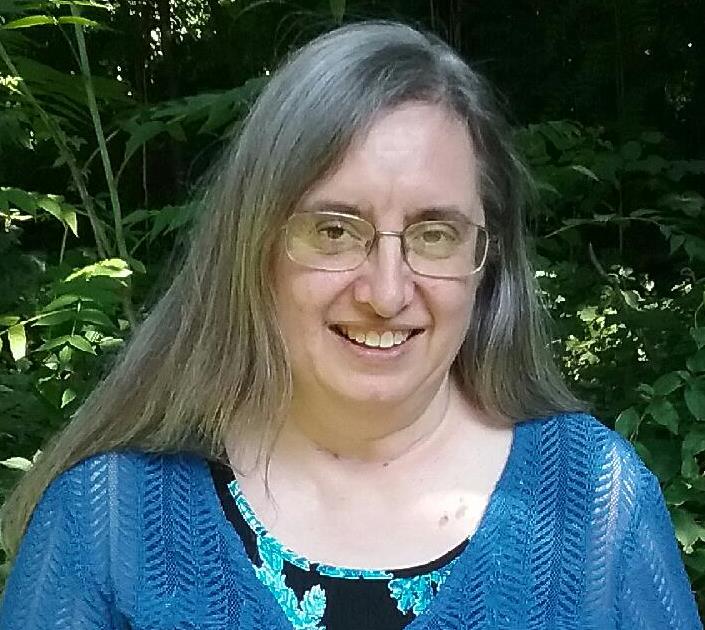
Mary Ann Crissey
Lab manager
mascris@pennmedicine.upenn.edu
Mary Ann S. Crissey has been a Research Specialist and lab manager at the University of Pennsylvania for more than twenty five years and has expertise in molecular biology and transgenic mouse techniques, resulting in authorship on twenty publications. After obtaining a BS in Biology at Pennsylvania State University, she worked at Temple University for ten years including five years researching DNA deletion mechanisms in prokaryotic systems. At Penn, Mary Ann first joined the lab of Dr. Rebecca Taub studying liver regeneration using transgenic mouse models. She designed and created a knockout mouse utilized in several publications. Switching gears, she went with Dr. Taub to the central nervous system division of a pharmaceutical company for two years, determining which regions of the brain were activated by lead compounds and developing an Alzheimer’s disease transgenic mouse model. Returning to Penn, Mary Ann joined the intestinal metaplasia group in the gastroenterology division, where she designed two successful transgenic mouse models and was first author on the publications. Diverse projects included inflammation and precancerous mouse models, immunophenotyping of Barrett’s Esophagus patient samples by flow cytometry, and culture of intestinal organoids for stem cell research. Her research was selected for oral and poster presentations at the international Digestive Disease Week meeting. Since joining the Amaravadi Lab in late 2019, she utilized CRISPR-Cas9 to knock out PPT1 in cell lines and developed a conditional PPT1 knockout mouse now available at Jackson Labs, while contributing to other lab projects.
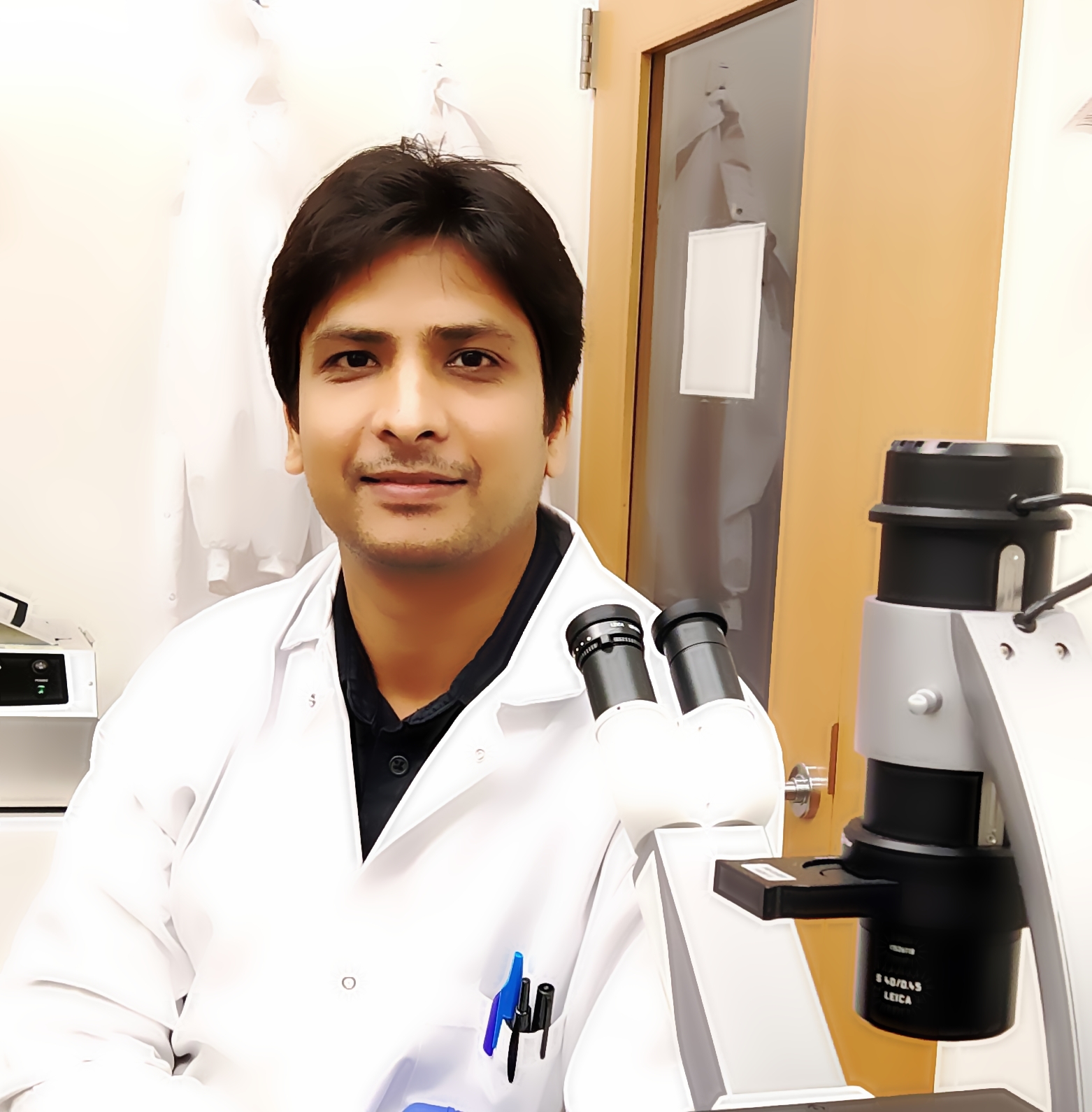
Vaibhav Jain, PhD
Research Associate
vaibhav.jain@pennmedicine.upenn.edu
Dr. Jain graduated from Institute of Genomics and Integrative Biology (IGIB), Delhi, India under the mentorship of Dr. Anurag Agrawal and Dr. Balaram Ghosh, in Respiratory disease biology. He received DBT Junior Research Fellowship (DBT- JRF) award to pursue his research. His thesis work focused on the role of polyamines metabolism in the asthma pathogenesis. In his PhD work, he did a detailed study of polyamine metabolism in vitro and in animal model of asthma and found that the reduction in polyamine catabolism leads to accumulation of polyamines in lung epithelial cells and subsequently to apoptosis. He used a preclinical anti-cancerous compound to solve this metabolic imbalance in animal model of asthma. During his doctoral work he collaboratively worked at Johns Hopkins and Columbia University, USA. He received multiple travel awards to present his work internationally, including prestigious Nature Travel Grants for Gordon Research Conferences as a speaker. Subsequently, he joined Columbia University to work in the field of Pancreatic Cancer using 3D-organoids as a model system. Dr. Jain joined the Amaravadi Lab in 2019 to expand his expertise in the field of metabolism to cancer disease biology. He is actively involved in exploring the metabolic vulnerabilities of autophagy in cancer. In 2023 he was promoted to a heme-onc faculty position, Research Associate.
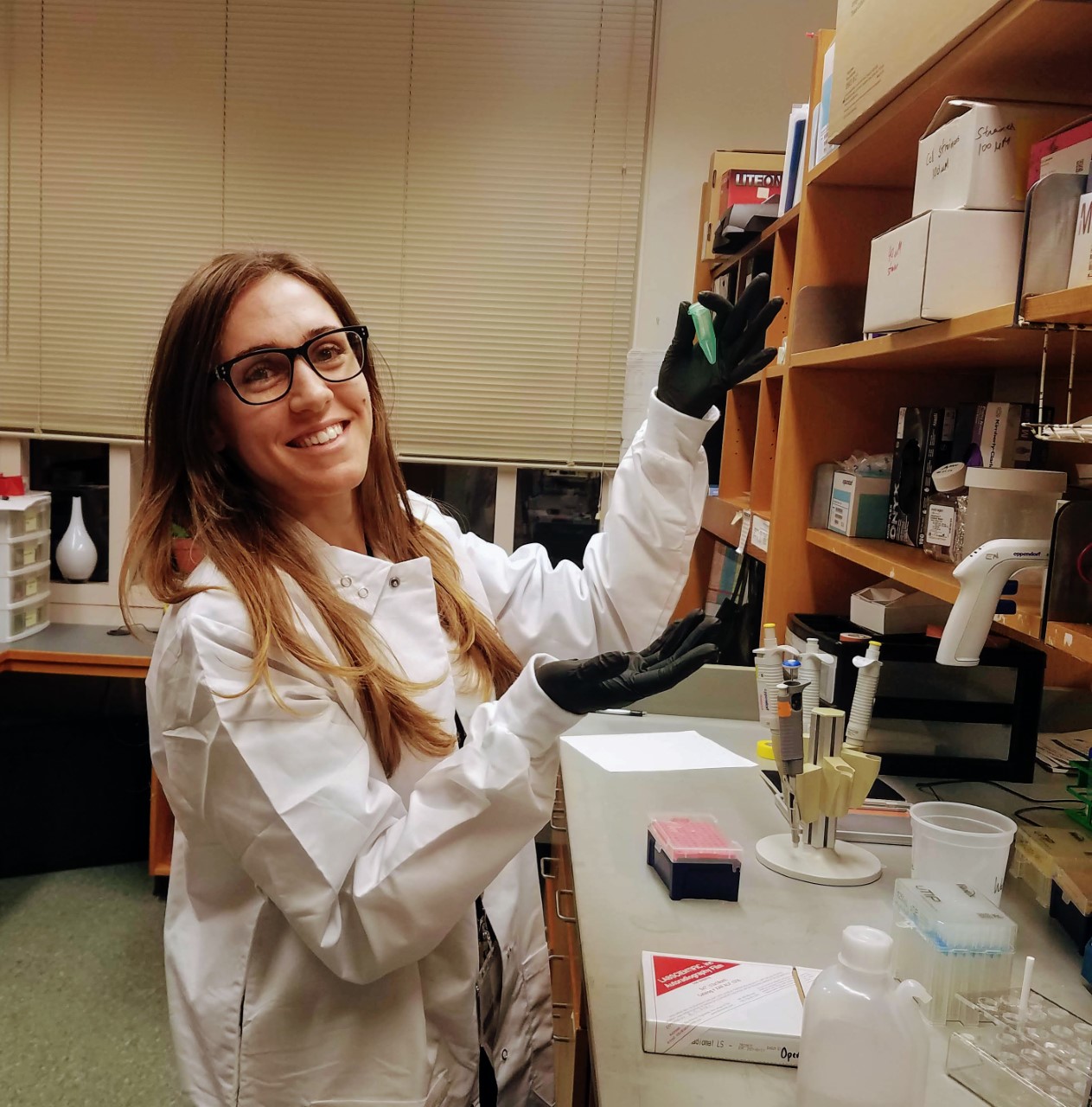
Amanda Versace, BS
Research Specialist
amanda.versace@pennmedicine.upenn.edu
Amanda graduated from Temple University where she studied Biochemistry. In 2011, she was admitted into an undergraduate research program at The Wistar Institute where she gained experience in biomedical research techniques and exposure to cancer studies. In 2017, she joined Thomas Jefferson University as a post baccalaureate researcher and lab manager under Dr. Sara E. Meyer. There she developed mouse models to study specific combinations of epigenetic mutations common in hematological disease. Amanda joined the Amaravadi Lab in 2020 and is learning the field of autophagy and its role in cancer. She is currently working on the chemical biology of novel lysosomal autophagy inhibitors in cancer.
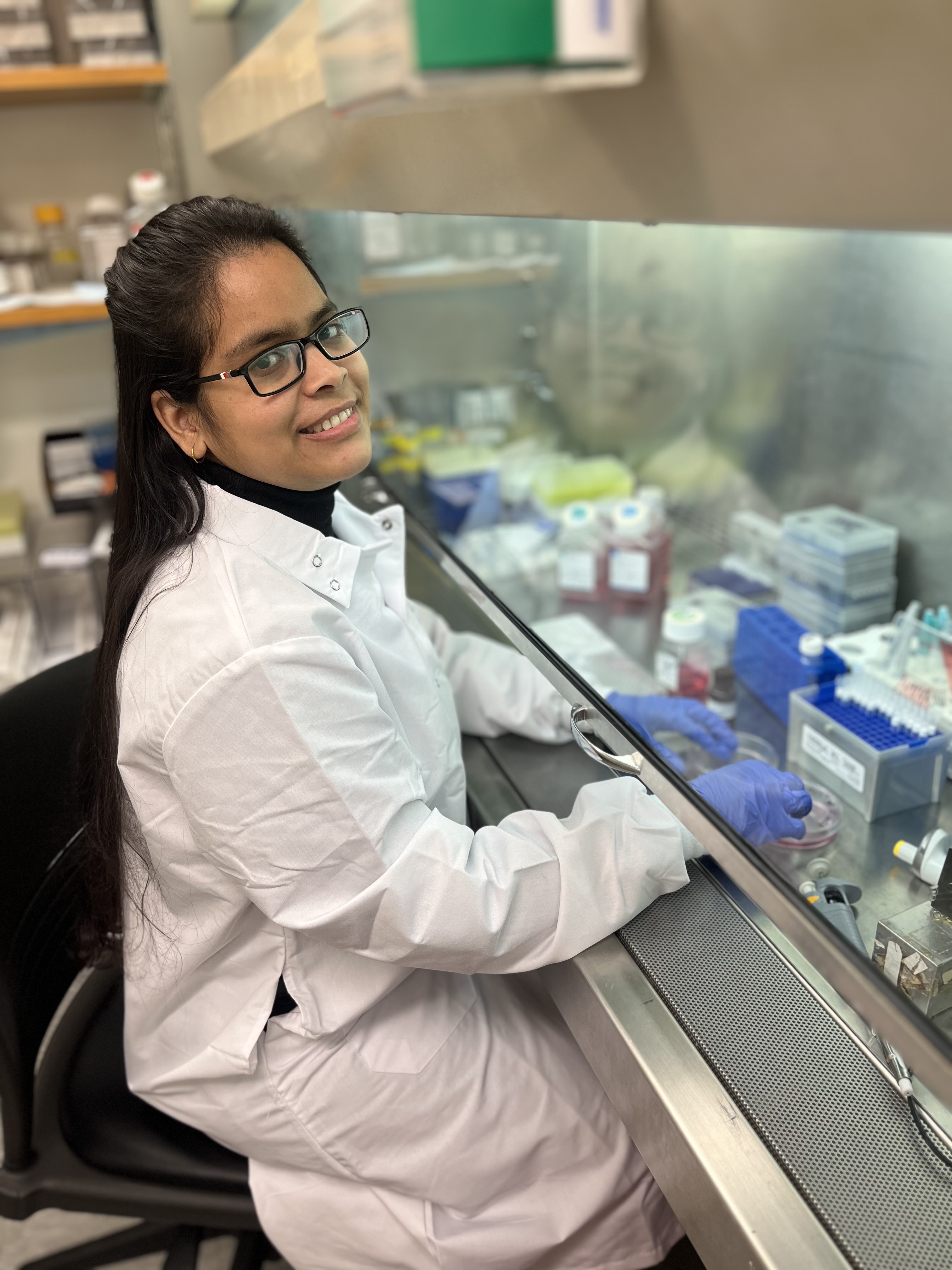
Arpana Singh, PhD
Post-Doctoral Fellow
arpana.singh@pennmedicine.upenn.edu
Dr. Singh graduated from the IACS, Kolkata, India, in 2022, under the guidance of Professor Prosenjit Sen in Immunology. She achieved the top position as a Gold Medalist in her department, Human Physiology, at the University of Calcutta in 2015 during her master’s studies. In 2016, she was awarded the DST-INSPIRE fellowship to pursue her Ph.D. During her doctoral studies, Dr. Singh investigated the intricate signaling pathways governing monocyte-to-macrophage differentiation associated with lipid droplets and exosomes in context of human diseases. Her research unveiled the previously unknown role of lipid droplet dynamics in the differentiation and functional behavior of macrophages, particularly in the context of atherosclerosis pathogenesis. Furthermore, she studied the cellular and molecular mechanisms underlying monocyte differentiation induced by exosomes from tuberculosis-infected macrophages. Additionally, she contributed to cancer biology projects within her lab, investigating the involvement of exosomes in epithelial-mesenchymal transition (EMT) during breast cancer metastasis and progression. Dr. Singh’s PhD work included 2 first-authored research manuscripts and 7 co-authored manuscripts. Dr. Singh joined the Amaravadi Lab in 2023 where she aimed to broaden her expertise in melanoma research. Her current research work focuses on targeting the melanoma genomics with RNA-LNP.

Aaron Kirchhoff
Research Specialist
Aaron Kirchhoff graduated from Purdue University with a BS in Animal Sciences and has spent the last 15 years in varied fields of research. He got his start in the lab of Dr. Julia Chester at Purdue, where he investigated stress and fear-related behavior in mice selectively bred for high or low alcohol preference. Aaron then moved to San Diego, CA in 2015, where he joined the lab of Dr. Philippe Gallay in the immunology and microbiology dept at Scripps Research. There he investigated the efficacy of antiretroviral drug combinations as prophylaxis against HIV transmission in a humanized mouse model. Later, in the lab of Dr. Brunie Felding in molecular medicine at Scripps, Aaron studied breast cancer and brain metastasis. In the Felding lab he investigated the efficacy of duocarmycin prodrug and the mechanism by which it is converted to free drug both in vitro, and in a syngeneic mouse model. In 2020, Aaron joined the lab of Dr. Thomas Rogers at Temple University, where he investigated peripheral neuropathy and the inflammatory response resulting from the comorbidity of opioid abuse, HIV infection, and COPD in a mouse model. Aaron joined the Amaravadi lab in 2025 where he is currently investigating RNA-LNP and lysosomal autophagy in cancer.
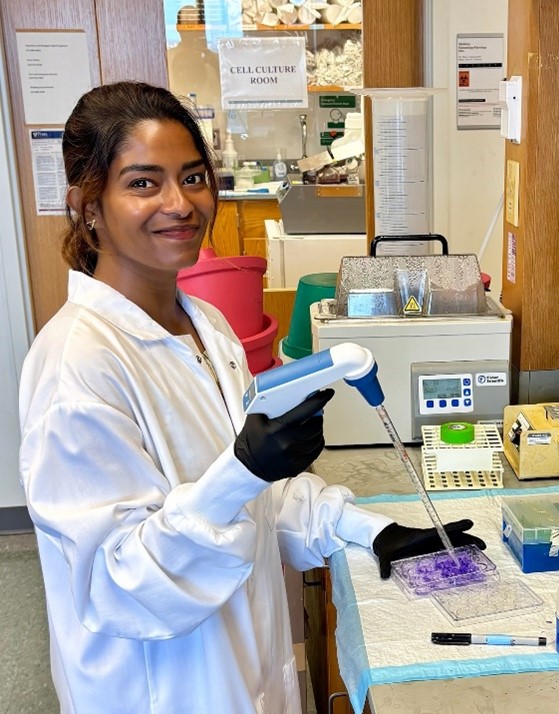
Suravi Ray, PSM
Research Specialist
Suravi Ray, PSM
Suravi Ray graduated from Drexel University with a BS in Biology (Ecology/Evolution/Genomics) as Valedictorian of her class of 2020. She has spent the last 8 years in varied fields of research. During her time at Drexel, she worked at the Academy of Natural Sciences in the Ornithology department in the lab of Dr. Jason Weckstein, investigating avian parasites. Her work led to several publications in parasitology journals and presentations at conferences. On graduation, Suravi started working at Temple University as a lab manager at the Fels Cancer Research Institute in the lab of Dr. Jonathan Soboloff. Here, she worked primarily on calcium signaling mechanisms in melanoma, pancreatic cancer and arthritis which led to several publications. Her independent project under Dr. Soboloff investigating the role of TRPC channels in inflammatory bone erosion led to a first author publication in Science Advances. During that time, Suravi also pursued her Professional Sciences Master’s degree in Biotechnology at Temple University. She graduated with her PSM in 2024. Suravi has received multiple poster awards and travel awards to present her work at both Drexel and Temple at various national conferences. She joined the Amaravadi lab in July 2024 and has since been working in projects looking at the role of lipid metabolism in lysosomal autophagy and investigating therapeutic approaches to melanoma using the RNA-LNP platform.

Anna Ramesh
Co-op intern
Anna Ramesh joined the Amaravadi Lab in March 2025 through Drexel University’s co-op program—a six-month, full-time professional experience that allows undergraduates to gain immersive, hands-on training in their field of interest. She is currently pursuing a Bachelor of Science in Biological Sciences at Drexel, where she is part of the BS/MD Early Assurance Program. Anna began her research journey in 2023 in the lab of Dr. Mauricio Reginato at the Drexel University College of Medicine, where she investigated lipid metabolism reprogramming in triple-negative breast cancer (TNBC). Her contributions toward developing brain-penetrant ACSS2 inhibitors that target breast cancer brain metastases (BCBM) led to a co-authored manuscript. She has presented her research on acetate’s protective role against ferroptosis in BCBM cells at national research conferences and earned multiple travel and enrichment grants for this work. In the Amaravadi Lab, Anna is exploring how inhibiting glycosphingolipid synthesis can enhance antitumor immune responses. She also shadows Dr. Ravi Amaravadi in clinic to gain exposure to oncology care in a translational research setting. Beyond the lab, Anna serves as the undergraduate representative on the Sidney Kimmel Board of Cancer Research Trainees, where she helps shape mentorship and training opportunities for early-career scientists across Philadelphia. Long-term, she hopes to bridge scientific discovery and clinical care to advance more precise and impactful approaches to cancer treatment.
Past Team Members
Monika Bhardwaj, PhD
Mahendra Rathore, PhD
Vito Rebecca, PhD — Assistant Professor of Biochemistry and Molecular Biology Johns Hopkins University
Rani Ojha, PhD- Assistant Professor PGIMER, Chandigarh, India
Jennifer J. Lee, BS- Medical Student Johns Hopkins University
Brandon Peng, BA- Research Specialist UPenn
Estela Noguera-Ortega, PhD- Post Doc, University of Pennsylvania
Gaurav Sharma, PhD- Post Doc, UT Southwestern
Sengottuvelan (Velan) Murugan, PhD- Research Associate Rutgers Cancer Institute
Quentin Mcafee, BS- PhD graduate University of Pennsylvania
Reshma Rangwala, MD PhD- CMO Karyopharm
Colin Fennelly- Scientist Millipore Sigma
Cynthia Chude- Medical student Meharry Medical School, PhD Candidate Wharton business school
Angelique Onarati- Lab Manager Dzouh Lab MGH Harvard
Shengfu Piao, MD PhD
Xiaohong Ma, PhD
Dan Wang, BS
Janice Hu, MS
Robert Leone, MD PhD
Arabinda Samanta PhD

